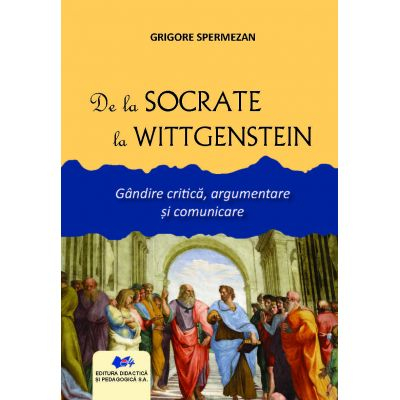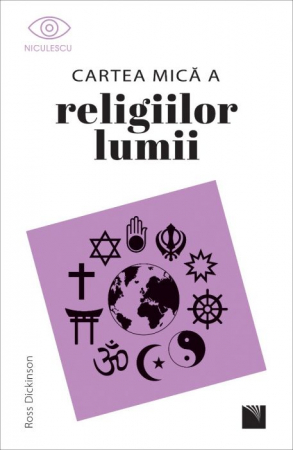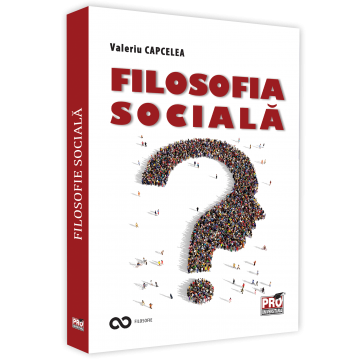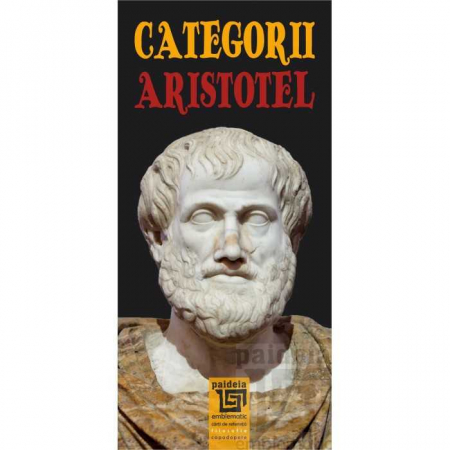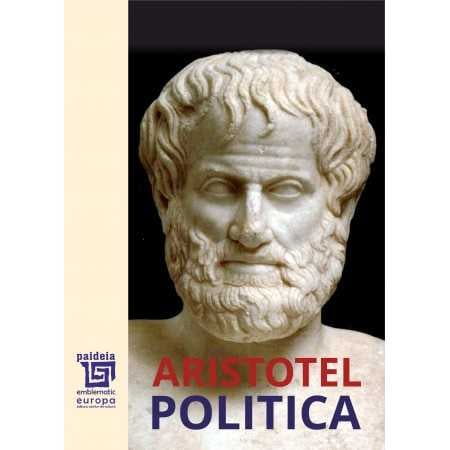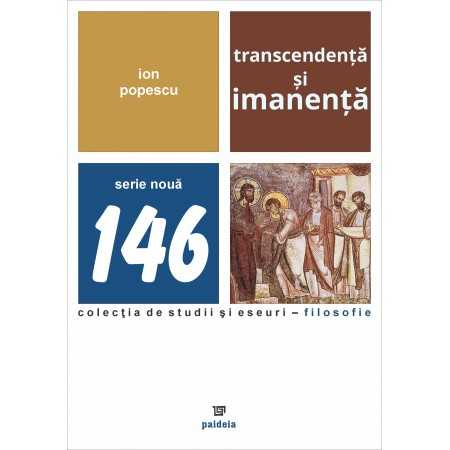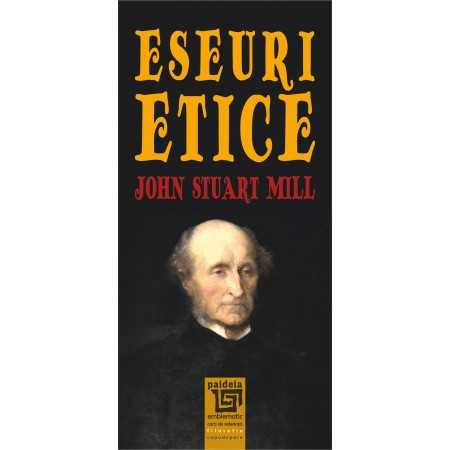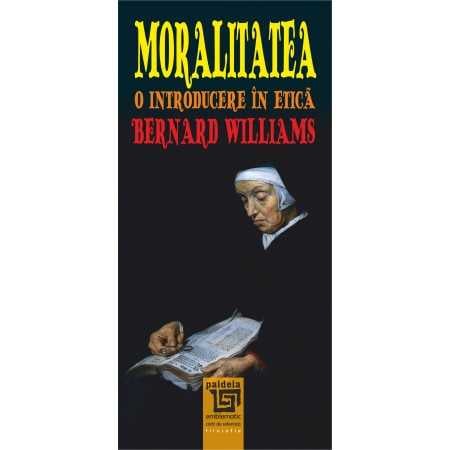Propuneri manuscrise: [email protected]: 0745 204 115
Urmărire comenzi Persoane fizice / Vânzări: 0745 200 357 / Comenzi Persoane juridice: 0721 722 783
ISBN: 978-606-28-1146-4
DOI: https://doi.org/10.5682/9786062811464
Anul publicării: 2020
Ediția: I
Pagini: 296
Editura: Editura Universitară
Autor: Mihai Iordache
- Descriere
- Download (1)
- Autori
- Cuprins
- Cuvânt înainte
- Review-uri (0)
In approaching the topics, I have strove to maintain an honest and pure Orthodox critique, based on Holy Scripture, patristic thinking and philocalic experience, struggling that Orthodoxy to be open to others and generous in their understanding, and not polemical, closed or partisan. The encounterwith Western Catholic and Protestant theology must be one without aggresion, fear, prejudices and ready-made ideas, seeking in the thinking and spirituality of Fathers the liberating solutions to theological problems, without tendencies to criticize or judge the others.
The texts of this book address ecumenical issues such as: Church, common values, reception of the other, conversion, wholeness of the Church, theological education, Protestant Reform, modern Protestant theologians, other religions, nationalism etc., along with ethical and spiritual topics as: migration, people, state, economy, family, human freedom, faith, obedience, law, cnsciousness, virtues, sins and passions, will and free will, spiritual progress and perfection.
-
Ethics Spirituality and Ecumenism
Descarcă
Pr. Dr. MIHAI IORDACHE (n. 1977) este parohul Bisericii Olari din Bucuresti, cu studii de doctorat la Universitatea din Basel (Elvetia) si Universitatea din Bucuresti.
Doctor în Teologie al Facultatii de Teologie Ortodoxa „Justinian Patriarhul” din Bucuresti (2011).
Cercetator stiintific în Comisia pentru Istoria Sud-Estului Europei, PRO ORIENTE, Universitatea din Viena si la Departamentul UNESCO pentru Schimburi Interculturale si Inter-religioase, Universitatea din Bucuresti.
A predat cursuri de Teologie Morala si Etica Crestina la Institutul de Studii Ecumenice al Universitatii Catolice din Liov (Ucraina).
Membru al Society of Christian Ethics (SUA), Society for the Study of Christian Ethics (Marea Britanie), Societas ETHICA (Germania), Societas Oecumenica (Germania), International Association for Mission Studies (Marea Britanie) si al altor organizatii teologice internationale.
A participat la numeroase congrese si conferinte teologice internationale din Europa si America
Carti publicate: Etica Protestanta. Scurta istorie. Secolele XVIXIX (Ed. Institutul European, 2019), Lumina Învierii. Spiritualitatea Sfintelor Pasti (Ed. Basilica, 2019) si Libertatea omului la Karl Barth,
Emil Brunner si Rudolf Bultmann. O evaluare ortodoxa (Ed. Academiei Române, 2017).
Studii (selectie): „Wege der Europäisierung Rumäniens. Die Regentschaft König Karls I. von Rumänien (1866-1914)” in Harald Heppner (Hrsg.), Attraktionen und Irritationen. Europa und sein Südosten im langen 19. Jahrhundert (Peter Lang Verlag, Berlin, 2019), „Ethical Views concerning Recognition of Values, Reception of the Other and Conversion in Ecumenical Relations”, in Dagmar Heller, Minna Hietamäki (Eds.), Just Do It?! Recognition and Reception in Ecumenical Relations, Beihefte zur Ökumenischen Rundschau, 117 (Evangelische Verlagsanstalt, Leipzig, 2018), „Orthodox Understanding of Catholicity as the Wholeness of the Church”, in Dagmar Heller, Peter Szentpetery (Hrsg.), Umstrittene Katholizität: Von der zwiespältigen Beziehung zwischen Vielfalt und Einheit, Beihefte zur Ökumenischen Rundschau, 105 (Evangelische Verlagsanstalt, Leipzig, 2016), „The Eastern Church Fathers’ Contribution to Economics and its Implications for Church Life”, in Swedish Missiological Themes, 102, 3/2014.
Introduction/ 9
Moral Considerations about Nationalism, Migration and Church /15
The Peoples Are Created by God. Pure and Natural Nationalism/ 16
Migration and its Causes/ 23
Causes of the Migration of the Romanian People /24
The Involvement of the Church in Nationalism and Migration. Ecumenical Perspectives /30
Romanian Diaspora/ 34
Ethical Views concerning Recognition of Values,Reception of the Other and Conversion in Ecumenical Relations /37
Clarification of Terms /38
Initial Aim of Ecumenism and the Values /40
The Recognition and Acceptance of the Other Christians/ 41
The Distinction between the Person and the Theology/ 44
The Recognition of our Value by God/ 45
Body of Christ. The Church in Communion / 47
Missiological Aspect of Conversion/50
Conversion and Uncreated Energies/52
Ethical Aspect of Conversion / 55
The Orthodox Understanding of Catholicity as the Wholeness of the Church / 59
Wholeness in the Creed /61
Wholeness in the Eastern Church Fathers’ Thinking /65
Wholeness and Christ’s Presence in the Church/ 70
Eucharist as the Central Part of the Wholeness of the Church/ 73
Wholeness and Sanctification of Persons/ 75
The Eastern Church Fathers’ Contribution to Economics and its Implications for Church Life /83
The Divine Economy – Oikonomia/ 85
Economics and the Church of Christ/ 87
Economics and Ethics / 94
Economics and Sacrifice /101
Orthodox and Moral Reflections to the Contribution of Ecumenism to Theological Education / 107
Seeking for the Problem/ 108
Theology and Spirituality/ 109
Recognition and Reception of Values in Ecumenical Relations /111
Five Personal Points on the Theme /114
Christianity and other Religions: Common Values. An Orthodox and Ethical View / 127
Time of Dialogue and Encounters/ 127
Holiness and Spirituality in the Orthodox Thinking / 129
Holiness and Spirituality in other Religions/132
Identity /139
Value/ 142
Person /145
Causes of the Reformation and the Concept of Freedom in Martin Luther, Jean Calvin and Ulrich Zwingli. An Orthodox Vision / 149
The Context of the Western World before Reformation /151
The Causes of the Reformation/ 154
Martin Luther/158
The Concept of Freedom in Martin Luther’s Thinking /165
Jean Calvin/ 170
The Concept of Freedom in Jean Calvin’s Thinking / 174
Ulrich Zwingli/ 177
The Concept of Freedom in Ulrich Zwingli’s Thinking /184
Faith, Grace and Human Freedom in Karl Barth’s Thinking. Orthodox Critics / 189
Faith and Human Freedom/ 190
The Relation between Divine Grace and Human Freedom / 197
The Christological Problem/ 204
Obedience and Human Freedom in Emil Brunner’s Thinking. Orthodox Critics / 217
Human Being’s Unconditional Obedience to God / 218
Limitation to Human Freedom/ 232
Discovering the Beautiful World. Nature as the Gift of God for Human Being / 245
Short Directive Lines / 246
The Beauty and the Harmony of the World/ 247
The World as the Gift of God to Men / 250
The Purpose of the World and the Rationalities of All Things / 251
Man in Relation to the Surrounding World / 257
Wege der Europäisierung Rumäniens. Die Regentschaft König Karls I. von Rumänien (1866-1914). Geschichtliche und Ethische Aspekte / 261
Der Herrscher / 261
Die großen Errungenschaften / 263
Weitere Komponenten der Transition/ 268
Das kulturelle Leben / 275
Ethische Aspekte/ 278
Instead of Conclusions / 281
References / 285
The texts are in the original English or German language because we have tried to gather together the results of personal theological research so far and make them accessible in their initial form with exact references to the original publications. Naturally the texts were slightly revised and modified where we considered it necessary, and the footnotes and bibliography were adapted to a common standard.
The name of volume, Ethics, Spirituality and Ecumenism, signifies a symbiosis between personal theological concerns dedicated to Ecumenism and its implications at the academic, institutional and social levels, specific to the first period of personal theological research, on the one hand, and the special and persevering interest in Orthodox Morality, Christian Ethics and Eastern Spirituality, from the second period of scientific concerns and research, on the other hand. This does not mean that in the beginning I had ecumenical concerns, and later they turned into moral and spiritual issues. Rather, the special and constant interest in morality, ethics and spirituality, which will most likely follow me throughout my life, was also facilitated by ecumenical research and meetings. These have helped me to better understand the crucial importance of morality and spirituality for the Christian life and to support genuine ecumenical efforts in the future. It is difficult to say where the ecumenical interest ends and where the moral concern begins.
Even the terms themselves have a special inner connection: true ecumenism cannot be done without the foundations of Christian moral principles, on a personal, familial and social level, and authentic Christian ethics will always understand and promote the efforts and sacrifices of ecumenism that strongly supports the approaching, communion and unity of Christians, as well as the respect and appreciation of other religions.
The presented texts generally aim the analysing of current theological themes through the thinking of Church Fathers, authentic preservers of Christian moral norms and Eastern spirituality, constantly supported by the reflections of famous modern theologians and important philosophers.
The understanding and life of the Fathers who wrote mainly moral and spiritual works are essential and determinant for Christian morality, for the acquiring and work of virtues and for man’s unceasing struggle against passions and sins.
Patristic thinking represents the most authentic and purest form of preserving and transmitting the words of our Saviour Jesus Christ and the Holy Apostles in the Church. The eternal truths of the Church regarding ethics, spirituality and ecumenism have a greater significance in the new context of the COVID-19 pandemic, which we are beginning to go through, generated by the mass infection of the global population with the new coronavirus
SARS-Cov2. It has already brought great and important changes in the structuring and development of human life, as well as in the understanding and wiser “reassessment” of God’s creation.
The topics discussed in this volume are analysed through Orthodox morality and spirituality, but also taking into account the norms of Protestant and Catholic Christian Ethics. They address current issues facing Eastern and Western European society and how they have been clarified theologically, culturally or socially.
I would like to mentioned here that the initial concerns in this systematic analysis were embodied in my first book Libertatea omului la Karl Barth, Emil Brunner și Rudolf Bultmann. O evaluare ortodoxă (The Human Freedom in Karl Barth, Emil Bruner and Rudolf Bultmann. An Orthodox Evaluation), which “offers an interesting and important sample of this issue” that “investigates in a completely unique way the concept of freedom” and “creates ecumenical bridges, in the sense of knowledge, showing ecumenical respect, even if the differences appear here and there in broad daylight”. Professor Hauser stated that the book is “a gemstone in the new cultural, philosophical and theological construction we hope for”. These concerns were gradually completed in the first phase in the volume Etica Protestantă. Scurtă istorie. Secolele XVI-XIX (The Protestant Ethics. A Brief History. 16th – 19th Centuries, 2019). The second part of the writing will soon appear.
The texts addressed in this volume have as a specific feature a bipolarity of theological, cultural and social contexts in the West and in the East. Contrary to current trends of globalized and hypertechnological society, ethical, spiritual and ecumenical efforts do not aim a unification or homogenization of these contexts, but the discovery of specific values and gradually assuming them in their own culture and life. The contribution of this book can be extrapolated to the social paradigms in which we live, trying to dismantle the huntingtonian barriers and find the seed of the common language between East and West, in the spirit of preserving and understanding cultural diversity as a way to communicate and share Christian values.
In approaching the topics, I have always strove to maintain an honest and pure Orthodox critique, based on Holy Scripture, patristic thinking and philocalic experience.
I will always strive that Orthodoxy based on moral and spiritual principles to be open to others and generous in their understanding, and not polemical, closed or partisan.
The encounter with Western Catholic and Protestant theology must be one without aggression, fear, prejudices and ready-made ideas (clichés), seeking in the thinking and spirituality of Fathers the liberating solutions to theological problems, without tendencies to criticize or judge the others.
Consequently, in the text I will often make references to St John Chrysostom, St Basil the Great, St Maximus the Confessor, St Gregory of Nazianzus, St Gregory of Nyssa, St Cyril of Alexandria, St Cyril of Jerusalem, St Cyprian of Carthage, Clement of Alexandria, etc.
Among the modern theologians mentioned, Father Dumitru Staniloae will stand out the most. Considered as the “spiritual patriarch of Romanian theology and a theologian of ecumenical Orthodoxy” († Daniel, Patriarch of the Romanian Orthodox Church), he was a “pan-Orthodox theologian”, as Jürgen Moltmann has said, who fulfilled to understand and live in depth the patristic thinking and to form a “neopatristic synthesis” (Georges Florovsky), based on a “theology of experience” (Costa de Bauregard). In this sense, Father Staniloae establishes a presence and actuality of the Church Fathers and forms a personal vision on ecumenism, ethics and spirituality, being the author of the famous volume Asceticism and Mysticism of the Orthodox Church, translated into English as Orthodox Spirituality. He also translated the entire twelve volumes of the Romanian Philokalia, being far more than a simply translation from the Greek, because he included theological introductions to each author and volume and numerous footnotes to the text, which take full account of recent critical research of Western (Catholic and Protestant) and Orthodox scholars as well. That is why his theology and thinking were rightly comparable to that of Karl Barth in Protestantism and Karl Rahner in Catholicism (Kalistos Ware), “himself becoming in a way a Church Father in the twentieth century” (Patriarch Daniel).
In the same time, we often refer to famous Orthodox theologians such as Vladimir Lossky, Paul Evdokimov, Nicolai Berdiaev, John Meyendorff, Kalistos Ware, John Zizioulas, Christos Yannaras, important Catholic Fathers and theologians as Thomas Aquinas, Erasmus of Rotherdam, Cardinal Christof Schönborn, Servais Pinackaers, famous Protestant theologians and well-known scientists such as Carl Gustav Jung, Walter Eucken, Wilhelm Röpke, Mircea Eliade, etc. As it can be seen, three articles are directly dedicated to Martin Luther, Jean Calvin, Ulrich Zwingli, Karl Barth and Emil Brunner, in an ethical, spiritual and ecumenical approach at the same time.
The texts of this volume address ecumenical issues such as: Church, common values, reception of the other, conversion, catholicity and wholeness of the Church, theological education, Protestant Reform, modern Protestant theologians, other religions, nationalism etc., along with ethical and spiritual topics as: migration, people, state, economy, family, human freedom, faith, obedience, law, consciousness, virtues, sins and passions, will and free will, spiritual progress and perfection, etc.

6359.png)
![Ethics, Spirituality and Ecumenism [1] Ethics, Spirituality and Ecumenism [1]](https://gomagcdn.ro/domains/editurauniversitara.ro/files/product/large/Iordache-Mihai_Ethics,-Spirituality..._BT.jpg-2958-5021.jpg)





